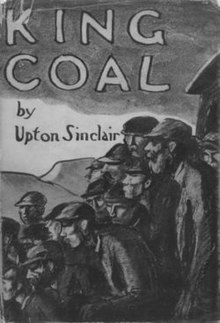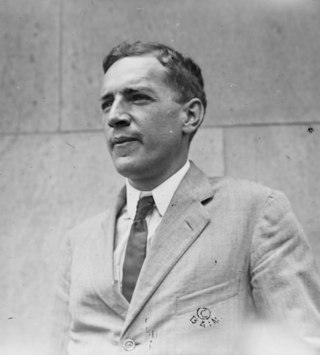
Upton Beall Sinclair Jr. was an American author, muckraker, and political activist, and the 1934 Democratic Party nominee for governor of California. He wrote nearly 100 books and other works in several genres. Sinclair's work was well known and popular in the first half of the 20th century, and he won the Pulitzer Prize for Fiction in 1943.
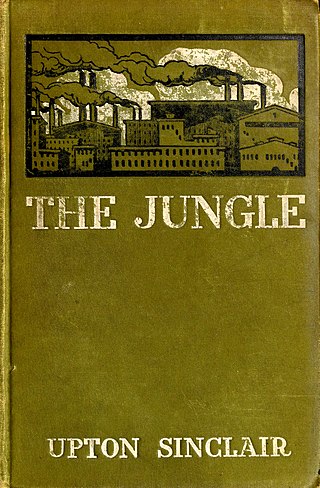
The Jungle is a novel by American muckraker author Upton Sinclair, known for his efforts to expose corruption in government and business in the early 20th century. In 1904, Sinclair spent seven weeks gathering information while working incognito in the meatpacking plants of the Chicago stockyards for the socialist newspaper Appeal to Reason, which published the novel in serial form in 1905. The novel was later published in book format by Doubleday in 1906.
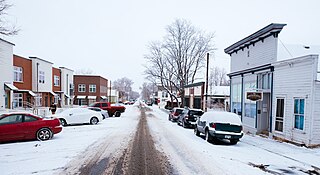
The City of Lafayette is a home rule municipality located in southeastern Boulder County, Colorado, United States. The city population was 30,411 at the 2020 United States Census.

The United Mine Workers of America is a North American labor union best known for representing coal miners. Today, the Union also represents health care workers, truck drivers, manufacturing workers and public employees in the United States and Canada. Although its main focus has always been on workers and their rights, the UMW of today also advocates for better roads, schools, and universal health care. By 2014, coal mining had largely shifted to open pit mines in Wyoming, and there were only 60,000 active coal miners. The UMW was left with 35,000 members, of whom 20,000 were coal miners, chiefly in underground mines in Kentucky and West Virginia. However it was responsible for pensions and medical benefits for 40,000 retired miners, and for 50,000 spouses and dependents.

The Ludlow Massacre was a mass killing perpetrated by anti-striker militia during the Colorado Coalfield War. Soldiers from the Colorado National Guard and private guards employed by Colorado Fuel and Iron Company (CF&I) attacked a tent colony of roughly 1,200 striking coal miners and their families in Ludlow, Colorado, on April 20, 1914. Approximately 21 people were killed, including miners' wives and children. John D. Rockefeller Jr. was a part-owner of CF&I who had recently appeared before a United States congressional hearing on the strikes, and he was widely blamed for having orchestrated the massacre.

The Battle of Blair Mountain was the largest labor uprising in United States history and is the largest armed uprising since the American Civil War. The conflict occurred in Logan County, West Virginia, as part of the Coal Wars, a series of early-20th-century labor disputes in Appalachia.

The Colorado Fuel and Iron Company (CF&I) was a large steel conglomerate founded by the merger of previous business interests in 1892. By 1903 it was mainly owned and controlled by John D. Rockefeller and Jay Gould's financial heirs. While it came to control many plants throughout the country, its main plant was a steel mill on the south side of Pueblo, Colorado, and was the city's main industry for most of its history. From 1901 to 1912, Colorado Fuel and Iron was one of the Dow Jones Industrials. The steel-market crash of 1982 led to the decline of the company. After going through several bankruptcies, the company was acquired by Oregon Steel Mills in 1993, and changed its name to Rocky Mountain Steel Mills. In January 2007, Rocky Mountain Steel Mills, along with the rest of Oregon Steel's holdings, were acquired by EVRAZ Group, a Russian steel corporation, for $2.3 billion.

The Paint Creek–Cabin Creek Strike, or the Paint Creek Mine War, was a confrontation between striking coal miners and coal operators in Kanawha County, West Virginia, centered on the area enclosed by two streams, Paint Creek and Cabin Creek.

Frank J. Hayes was an American miner and president of the United Mine Workers of America (UMWA) from 1917 to 1919. A Democrat, he also served as Lieutenant Governor of Colorado in 1937–39.
Early coal mining in Colorado in the United States was spread across the state. Some early coal mining areas are currently inactive, including the Denver Basin and Raton Basin coal fields along the Front Range. There are currently 8 active coal mines, all in western Colorado.

The Estevan riot, also known as the Black Tuesday Riot, was a confrontation between the Royal Canadian Mounted Police and striking coal miners from nearby Bienfait, Saskatchewan, which took place in Estevan, Saskatchewan, on September 29, 1931. The miners had been on strike since September 7, 1931, hoping to improve their wages and working conditions.

The Coal War is a novel by Upton Sinclair. It is a sequel to King Coal and documents the continuing exploits of that novel's protagonist, Hal Warner. When Sinclair submitted the novel for publication in 1917, it was rejected as being insufficiently interesting from a novelistic standpoint. After this, the manuscript remained in limbo until 1976, when it was finally published by the Colorado Associated University Press. The book was published eight years after Sinclair's death.

John Cleveland Osgood was a self-made man who founded the Colorado Fuel and Iron Company and Victor-American Fuel Company but has been referred to as a robber baron. He also created Redstone, Colorado.

The Colorado Coalfield War was a major labor uprising in the southern and central Colorado Front Range between September 1913 and December 1914. Striking began in late summer 1913, organized by the United Mine Workers of America (UMWA) against the Rockefeller-owned Colorado Fuel and Iron (CF&I) after years of deadly working conditions and low pay. The strike was marred by targeted and indiscriminate attacks from both strikers and individuals hired by CF&I to defend its property. Fighting was focused in the southern coal-mining counties of Las Animas and Huerfano, where the Colorado and Southern railroad passed through Trinidad and Walsenburg. It followed the 1912 Northern Colorado Coalfield Strikes.

The Illinois coal wars, also known as the Illinois mine wars and several other names, were a series of labor disputes between 1898 and 1900 in central and southern Illinois.
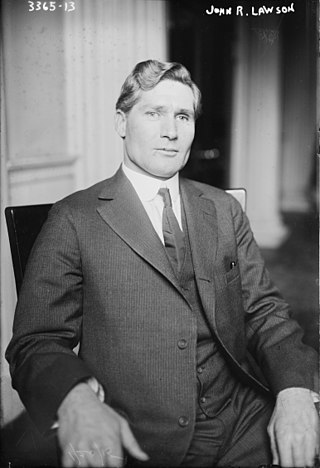
John Rankin Lawson was a Colorado union leader and businessman. He was the leader of District 15 of the United Mine Workers of America (UMWA) at the time of the Colorado Coalfield War and the Ludlow Massacre. He was convicted on May 3, 1915, of the murder of a deputy sheriff who died at Ludlow during the massacre at a trial held in Trinidad, Colorado and sentenced to life at hard labor, but freed on appeal to the Colorado Supreme Court in June 1917. He served as president of the Colorado Federation of Labor and on the International Executive Board of the United Mine Workers. He was a vice-president and director of the Rocky Mountain Fuel Company (CF&I).
Felix Pogliano was an Argentine-American member of the United Mine Workers of America, who served as the Secretary and Treasurer of the union's 15th district based in Colorado.
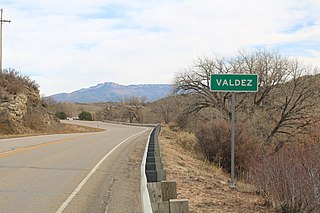
Valdez is an unincorporated community and a census-designated place (CDP) located in and governed by Las Animas County, Colorado, United States. From 1907 to 1960, Valdez served as a company town for Colorado Fuel & Iron and its Frederick coal mine, the company's most productive and second largest. The population of the Valdez CDP was 46 at the United States Census 2020. The Trinidad post office serves the area.
The Carbon County Strikes took place in Carbon County, Utah from 1903–1904. The strikes primarily consisted of Slavic and Italian immigrant mine workers who partnered with the United Mine Workers of America strikes in Colorado to protest the dangerous working conditions of the Utah coal mines. The Carbon County strikes were considered the most important labor confrontation in the United States at the time. The Utah Fuel Company strongly opposed initiatives to unionize coal workers in Utah and were the primary opposition to the UMWA at the time. The Carbon County Strikes would ultimately fail in its attempt to unionize the coal workers of Utah simply because it "did not have enough support, either internally or externally, to win against a powerful and influential company that effectively played on radical, anti-foreign sentiments in defending its position" but it demonstrated a significant nationwide effort in strengthening unionization in the west.

Primero is a ghost town in Las Animas County, Colorado, United States. The community was a company coal mining town for the Colorado Fuel and Iron Company during the early 20th century.
